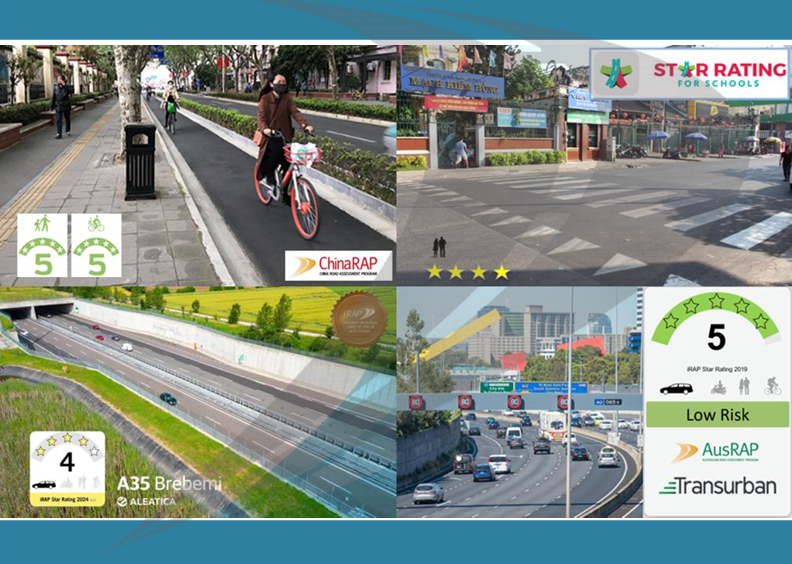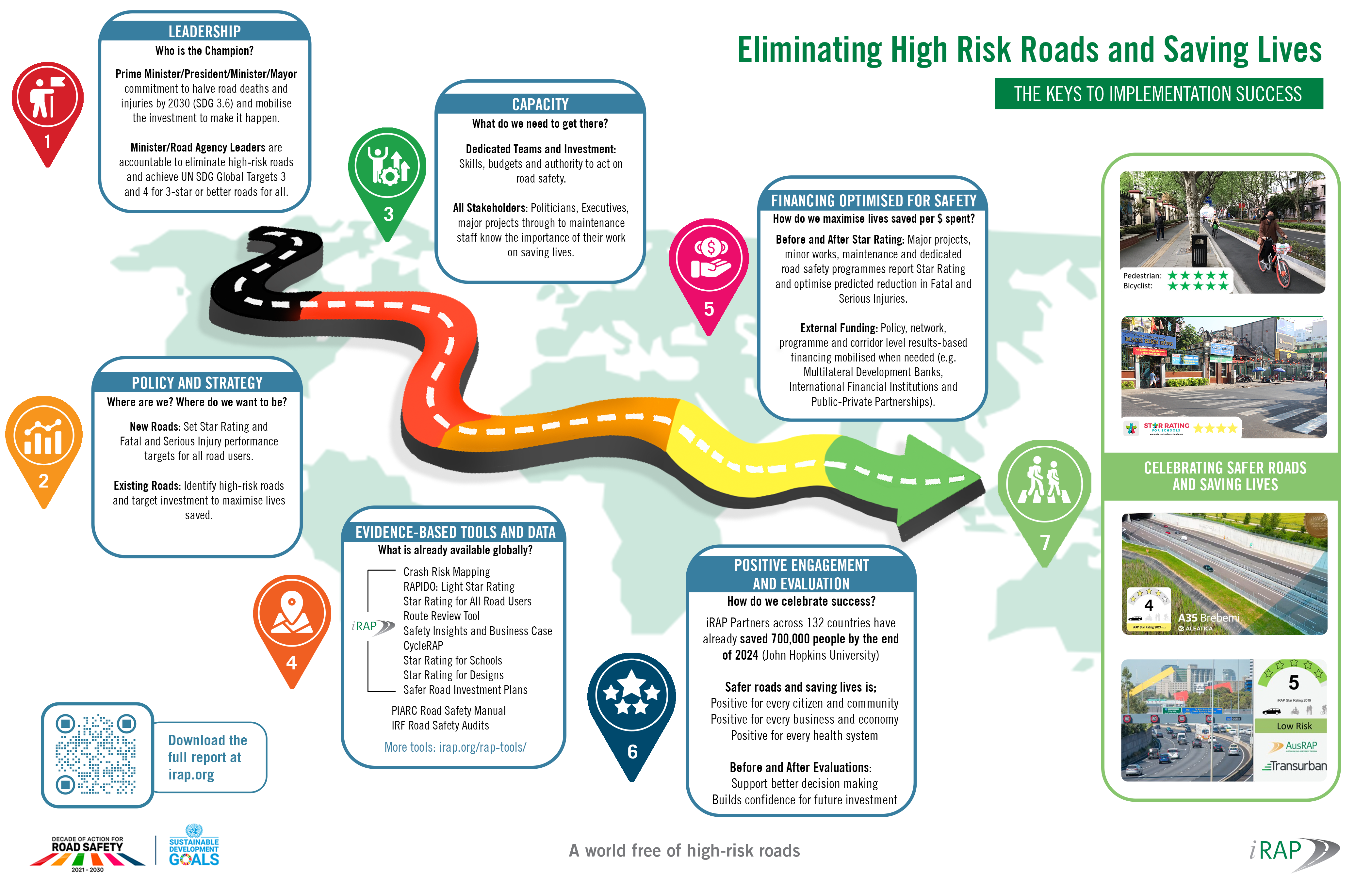The United Nations Sustainable Development Goal 3.6 aims to halve road deaths and injuries by 2030. Member States have agreed 12 Global Road Safety Performance Targets that include ensuring more than 75% of travel is on the equivalent of 3-star or better roads for all road users by 2030. Achieving this target will reduce the annual burden of road trauma by one third and save an estimated 300 million deaths and injuries over the life of the treatments. More than $8 of benefits will accrue for every $1 invested.
Despite the compelling social, financial and economic business case for investment the progress of safer road infrastructure implementation is slow. The report outlines the keys to implementation success as a means of ensuring roads are upgraded and lives saved. This requires leadership; well-formed policy & strategy; financial and technical capacity; evidence based tools and data; mobilization of existing and new finance that is optimised for safety; positive stakeholder engagement; monitoring and evaluation and finally the celebration of safer roads and the saving of lives.
Global case studies of success are explored looking at examples where high-risk roads have been identified, financed and upgraded systematically. Likewise examples where limited or no upgrades resulted from iRAP-related assessments are examined to provide lessons for the future. Together with partner feedback and inputs from iRAP’s Global Policy Advisory Committee they provide an outline of the keys to implementation success and the recommended next steps that include:
- Building the Foundations for Successful Implementation
- Joining forces to provide Multi-partner Programmatic Support
- Developing the market for Policy and Results-based financing
- Creating a Shared Data Platform and expansion of AiRAP
- Collating a Pipeline of Investable Safer Road Infrastructure Projects
- Preparing an Implementation Support Terms of Reference that all partners can use
- Developing Before and After Star Rating dashboards for global use, and
- Supporting efforts to ensure SDG accountability and monitoring.
The full report can be downloaded from here
Media enquiries:
For iRAP:
Judy Williams, Global Programme and Communications Manager
Email: judy.williams@irap.org
Mob: +61 400 782 204
About the International Road Assessment Program (iRAP)
iRAP is a registered charity that works with partners including the United Nations, the World Health Organization, governments, development banks, mobility clubs, industry, road safety NGOs and research organizations to provide evidence-based tools, training and support to help make roads safe.
The iRAP road safety star rating methodology is free to use and provides an objective measure of the level of “built-in” road safety for vehicle occupants, motorcyclists, cyclists, and pedestrians. A 1-star road is the least safe and a 5-star road is the safest. iRAP works with its partners to: inspect high-risk roads and develop Star Ratings, Risk Maps and Safer Roads Investment Plans; provide training, tools and support to develop and maintain national, regional and local capacity; and track road safety outcomes so that funding agencies can assess the economic and life-saving benefits of their investments.
iRAP and its partners have so far star-rated 1.9 million kilometres of roads and layouts, and 1,940 schools, influencing the safety of $111 billion of infrastructure investment. 1.9 million kilometres have been risk mapped and nearly 76,000 people have been trained worldwide.
According to research led by Johns Hopkins University, published in the respected journal PLOS One, road projects funded by governments, development banks and private sector road operators around the world using iRAP methodology and tools have prevented 700,000 deaths and serious injuries in 74 countries between 2016 and the end of 2024.
iRAP’s Safety Insights Explorer sheds light on the human and economic impact of road crashes, how safe our roads are, and the Business Case for the achievement of UN Target 4 for 75% of travel to be on 3-star or better roads by 2030 in each country worldwide.


















